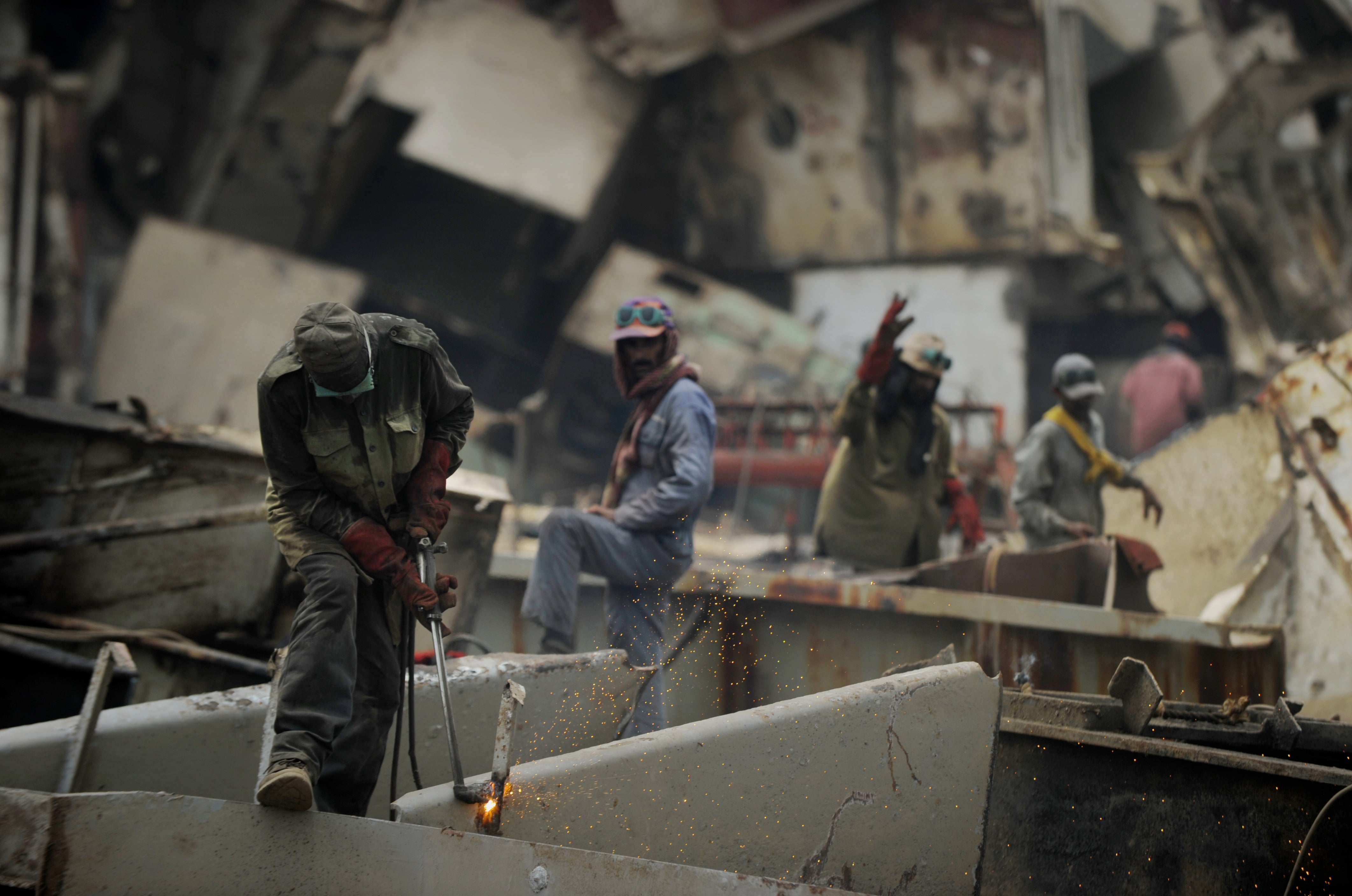UK cruise ships sent to be broken up in India’s ‘ship graveyard’, where 400 workers have died
At least 13 ships with UK connections have been sold to South Asian ship-breaking industry from the beginning of 2020 - report

Two cruise ships from the UK have been scrapped in India at a site known as the world’s largest “ship graveyard”, despite regulations designed to prevent the practice and serious environmental concerns.
It is illegal for developed countries like the UK to send ships for scrapping in developing countries, with the wrecks considered hazardous waste and requiring specialist handling at EU-approved facilities.
The two ships identified in a new BBC investigation published on Tuesday were bought at auction with the expressed purpose of “further trading” - in other words, that they would continue to provide cruises.
Instead, however, the Magellan and the Marco Polo – the world’s last surviving ocean cruise liner – were reportedly sold off for scrap at rates considerably higher than their November auction prices.
Marco Polo was bought at auction for around £2m by offshore company Highseas Ltd, which said it would be used as a floating hotel in Dubai.
But the ship was sold for scrap at a price of £4m just two months later. HighSeas Ltd director Rishi Arggawal told BBC News their intention was to sell it "but regrettably, the intended buyers in Dubai refused to take delivery".
Magellan was bought at auction by a Greek ship owner, but sold within months for scrap after no new buyer was found.
Since the beginning of 2020, the BBC found at least 13 other ships connected to the UK that have arrived at the beaches of India, Pakistan and Bangladesh to be dumped and scrapped.
These South Asian countries continue to be preferred to EU-approved shipyards, claiming some 70 per cent of the world’s large vessels, because they offer far higher prices for the scrapped steel.
The single biggest ship-breaking area in the world is situated in the western part of India’s Gujarat state, up to the beaches of Mumbai.
They are used despite serious concerns about the environmental impact to the coastline and allegations of horrific working conditions, with ship-breakers expected to handle a range of hazardous materials from heavy metals and waste oil to asbestos with minimal protections.
Fatal accidents are regularly reported from these yards, including from gas explosions and falls from height. The organisation Ship-breaking Platform has reportedly documented the deaths of more than 400 workers on these beaches since 2009.
Join our commenting forum
Join thought-provoking conversations, follow other Independent readers and see their replies
Comments



Bookmark popover
Removed from bookmarks